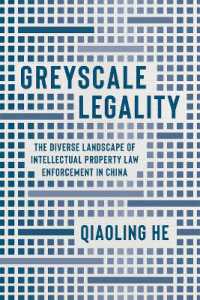Full Description
Grounded in extensive and original ethnographic fieldwork, this book makes a novel contribution to migration studies by examining a European labour migration to the Global South, namely contemporary Portuguese migration to Angola in a postcolonial context.







